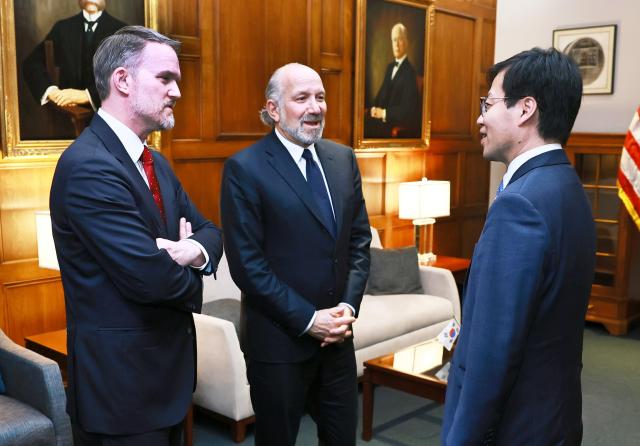
SEOUL, June 28 (AJP) - South Korea and the United States engaged in detailed tariff negotiations from Jun. 22 to 27 in Washington DC, with American officials presenting specific demands ranging from beef import regulations to participation in Alaska's liquefied natural gas projects, government sources said on Saturday. The third round of technical discussions between Trade Minister Yeo Han-gu and US counterparts comes as the Jul. 8 deadline for mutual tariff relief approaches, marking a critical juncture for the Lee Jae-myung administration's first major trade negotiations with Washington.
American negotiators outlined concrete requirements for addressing what they characterize as trade barriers, including relaxing South Korea's 30-month age limit on beef imports and removing restrictions on Google's precision mapping data exports. US officials argued that reducing Korea's trade surplus requires eliminating such non-tariff barriers while expanding purchases of American goods and services. The demands represent a more detailed version of issues previously raised in annual trade barrier reports, with particular emphasis on agricultural and digital sector reforms.
Korean negotiators emphasized the unfairness of imposing 25 percent mutual tariffs on a country that maintains virtually tariff-free trade through existing free trade agreements, arguing that minimizing tariffs on interconnected supply chain items like steel and automobiles would actually support America's manufacturing renaissance goals. While expressing willingness to engage constructively on information technology and manufacturing standards, Korean officials highlighted that South Korea already serves as America's largest beef import market, seeking to address what they termed misunderstandings about existing trade relationships.
The White House separately requested Korean participation in Alaska's LNG development project, with Energy Council Chairman Doug Burgum meeting Minister Yeo to discuss what officials described as President Trump's priority energy initiative. A senior government official noted that among various American energy projects, the Alaska LNG development represents the administration's singular focus, though participation would require careful evaluation given the project's commercial risks and scale.
The negotiations face a critical decision point in July, with the US indicating possible deadline extensions until September for countries presenting favorable proposals while maintaining pressure on others to conclude talks promptly. Trade experts suggest that resolving the 25 percent tariffs crucial to Korea's trade-dependent economy will require high-level political decisions on which American demands to accommodate, with the outcome likely determined through eventual summit-level discussions between the two countries' leaders.
Copyright ⓒ Aju Press All rights reserved.

